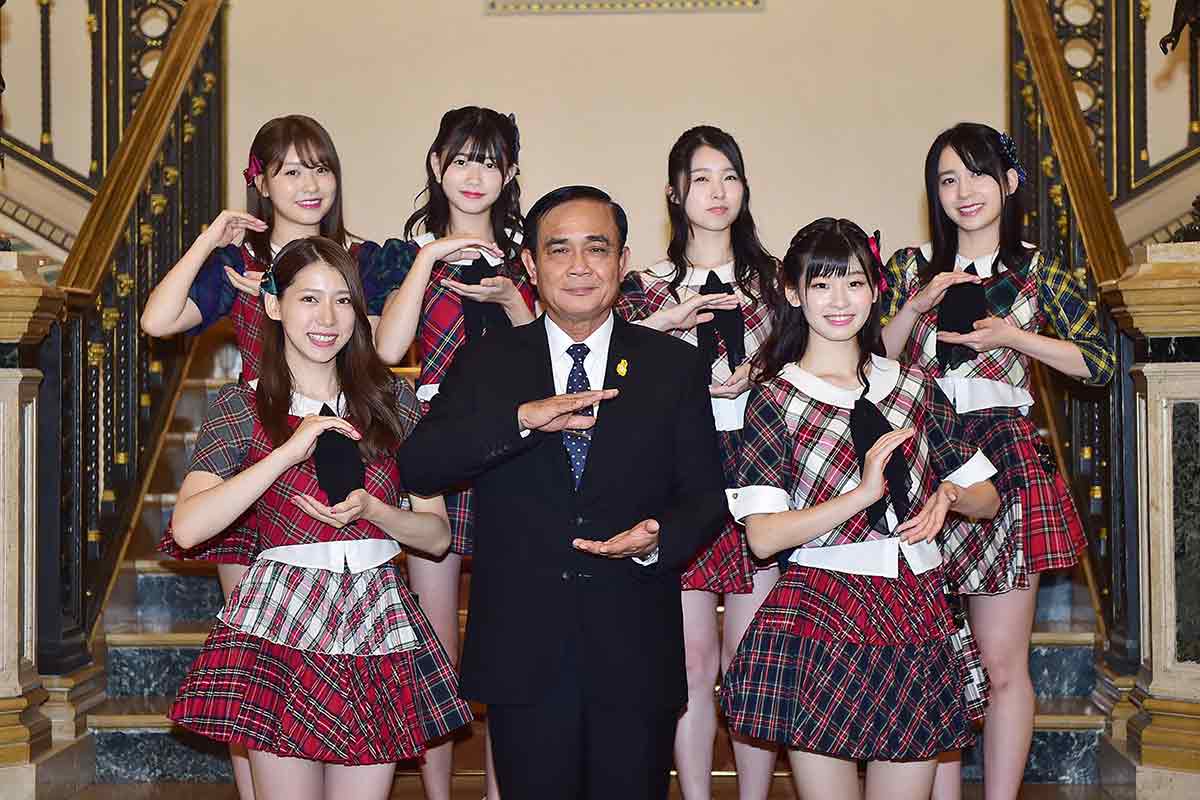Thailand Prime Minister Prayut Chan-o-cha finally gave the clearest hint recently that he was eyeing a public role for himself after the election promised next year. Speaking to reporters, Prayut, who has previously avoided questions about his political future, said “I can say right now that I am interested in politics.”
Although the revelation was met with frustration from critics who say that the prime minister should leave his position as head of the National Council for Peace and Order (NCPO) if he was indeed interested in public office, Deputy Prime Minister Wissanu Krea-ngam rejected this, saying that Prayut was not required by law to step down as leader of the ruling junta.
In fact, under the 2017 constitution, Prayut can become prime minister via two channels: The first would see his name appear on a party list of three prime ministerial candidates but his party would need at least 251 votes from the nation's 500 members of Parliament (MPs) to be eligible to nominate Prayut for a parliamentary vote to become prime minister. The second option could see him nominated as a non-elected "outsider" prime minister. This arrangement could be triggered if Parliament fails to choose a prime minister under the first option, provided at least two thirds of all senators and MPs throw their support behind him.
In order for Prayut to see either of these options come to life, he would either need to win the favour of other political parties and politicians or to have significant power over them. So how has he moved his proverbial pieces on the chessboard toward such an end?
The blockade
Associate professor and Dean of the College of Social Innovation at Rangsit University Sungsidh Piriyarangsan recently said a big weakness in Thailand’s political system is that there are no agencies which can truly scrutinise politicians.
More recently, the NCPO answered that call by setting up a new agency to follow up on the implementation of various projects initiated by the government.
At a recent meeting, Prayut expressed concerns over the progress of various projects implemented by the NCPO and the government. In order to ensure continuity, he suggested the establishment of a new agency to follow through on the execution of all projects while keeping an eye on any problems they may face as well as complaints received from the public.
Although not much has been revealed about this agency, it is likely that it would have the power to keep politicians in check and in effect – if the NCPO so chooses – to influence politicians’ hands. But it isn’t this new agency alone that gives the NCPO power over Thailand’s politicians.
The bind
In July, The National Legislative Assembly voted unanimously to approve, with binding effect, the country’s 20-year National Strategy. The National Strategy overlooks six strategic areas: security, competitiveness enhancement, human resource development, social equality, green growth and rebalancing and public sector development.
Politicians, however, have cried foul claiming that the 20-year National Strategy keeps the junta in control even after the election.
In marketing the controversial plan, Minister in the Prime Minister’s Office Kobsak Pootrakool said it is designed to solve the issue of inconsistency of government policies. “New governments often cancel the policies of previous governments and initiate new projects and each government has an average of two years in office,” he explained.

Source: National Institute of Development Administration
The endgame
The last bit of the puzzle as far as getting politicians to view him as a democratically-elected prime minister is to win the favour of the people.
In its series of polls since the beginning of the year, the National Institute of Development Administration has placed Prayut as top choice for the next prime minister. Most recently, in the poll conducted between 17 and 18 September, the institute revealed that more than 29 percent of respondents chose Prayut as their choice for next prime minister.
Critics of the National Institute of Development Administration, however, have accused the institute of portraying biased numbers in favour of Prayut. Some have even questioned why the numerous delays on an election date if Prayut was indeed as popular as the institute’s poll says he is.
Prayut himself has taken several measures to increase his popularity among Thais including the unveiling of Thailand 4.0 in 2016 which seeks to free Thailand from the middle-income trap.
A recent narrative on the legalising of medical marijuana – possibly by next year – may be yet another means by which Prayut will be able to gain popularity before the election.
Prayut has also been seen as attempting to adopt a more open and friendlier persona while shedding his military image. A clear example of this was when he was seen in numerous photos with Japanese-pop girl group AKB48 this month when they were in Thailand recently. The photos show a warmer side to Prayut as opposed to the image of a highly-disciplined military general the world is more familiar with.
Prayut has been carefully putting all the pieces in place for his career in politics and there is a very real possibility that the outcome might be in his favour. However, at the end of the day it is the people who still hold sway and will decide the outcome of Prayut’s chess game. The question now is whether the general checkmates the opposition or is checkmated himself.
Related articles:
